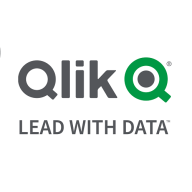

FME and Qlik Compose are competing products designed for data integration and transformation. FME offers superior pricing and support advantages, while Qlik Compose stands out with its extensive feature set, making it appealing for users willing to invest more for comprehensive capabilities.
Features: FME's graphical user interface is intuitive, reducing the need for extensive coding. It is notably effective in spatial data handling and integrates smoothly with various systems, offering numerous connectors. Automation features allow for easy scheduling and data trigger handling. Qlik Compose excels in advanced automation and data modeling. It simplifies warehousing with its auto-mapping and data segregation features, allowing for integration of multiple source systems without extensive coding.
Room for Improvement: FME can enhance its real-time data processing and incorporate more cloud-native capabilities. The interface, while user-friendly, could benefit from updates to further optimize user experience. Increased scalability options would also be beneficial. Qlik Compose could focus on expanding its data integration capabilities, as well as improving initial setup simplicity. Enhancing the intuitiveness of its data segregation features and providing more in-depth training resources would be advantageous.
Ease of Deployment and Customer Service: FME offers intuitive deployment with strong customer support, making integration straightforward and efficient. Its approach facilitates rapid deployment, which is well-suited for users requiring quick implementation. Qlik Compose provides flexibility with its cloud and on-premises deployment options, ensuring smooth integration within existing IT environments. It is noted for its comprehensive guides and responsive support, contributing to an efficient deployment process.
Pricing and ROI: FME provides a cost-effective solution with a low entry barrier, offering significant ROI through its extensive format support, appealing to smaller businesses. Its pricing model makes it accessible for maximizing ROI with flexible data solutions. Qlik Compose involves higher initial investments, with ROI becoming evident through its automation capabilities for large-scale operations. It is geared towards larger enterprises, offering value in robust data warehousing for extensive integration needs.


FME is the data integration platform with the best support for spatial data. Run workflows on the desktop or deploy them in a server or cloud environment.
Qlik Sense is a powerful business intelligence tool that offers a range of features to help organizations make faster and more informed decisions. Its primary use cases include operational and financial dashboards, self-service reporting, and centralized access to cross-functional reports. The solution is praised for its mobile platform, ease of use, data-sharing capabilities, and extensibility.
Qlik Sense has helped organizations improve data literacy, reduce time consumed in complex reports, and provide widely available MI to senior stakeholders. It also enables self-service analytics, improves data quality and governance, enhances collaboration, and reduces costs.
We monitor all Data Integration reviews to prevent fraudulent reviews and keep review quality high. We do not post reviews by company employees or direct competitors. We validate each review for authenticity via cross-reference with LinkedIn, and personal follow-up with the reviewer when necessary.